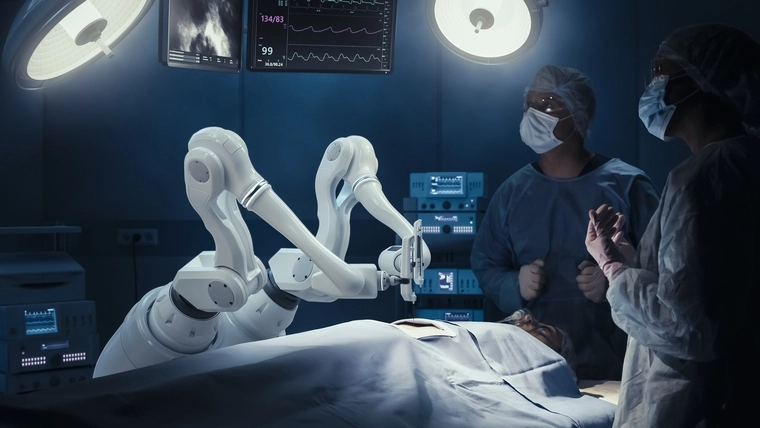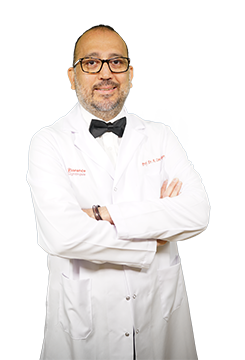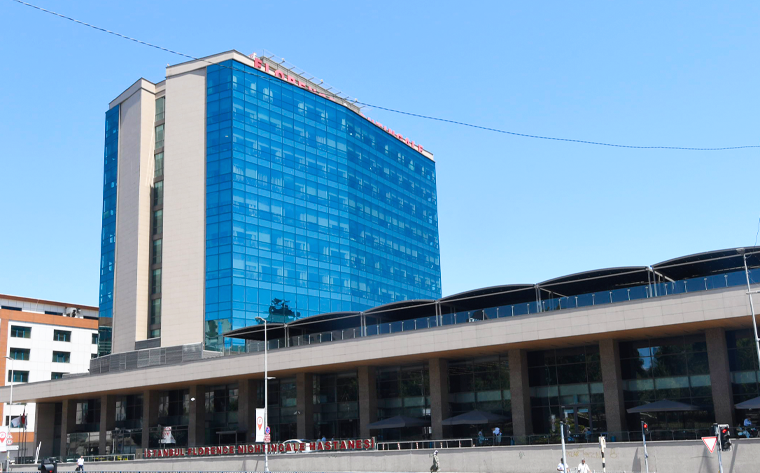
What is Robotic Gynecology Surgery and In Which Diseases Is It Used?
Robotic gynecology surgery is a minimally invasive surgical approach performed using advanced technology robotic systems. This method allows many surgical procedures, especially in the field of gynecology and obstetrics, to be performed more precisely and effectively. Robotic surgery is performed using robotic arms that mimic the surgeon's hand movements, allowing the procedure to be performed with smaller incisions and reducing the risk of complications.
What is Robotic Gynecology Surgery?
Robotic gynecology surgery is a minimally invasive surgical procedure in which the surgeon directs robotic arms via a control panel. In this system, the surgeon does not perform the operation directly, but guides the robotic arms to manage surgical instruments. The robotic surgical system provides a high-resolution three-dimensional image, which allows the surgeon to clearly see the target tissues and organs.
What are the Advantages of Robotic Gynecology Surgery?
Robotic gynecology surgery has many advantages over traditional open surgery and laparoscopic methods. These advantages offer significant benefits for both surgeons and patients.
- Minimally Invasive Method: Robotic surgery is performed with smaller incisions. This means that post-operative scars are smaller and aesthetically better. In addition, patients recover faster because there is less tissue damage.
- Less Blood Loss: Robotic systems precisely mimic the surgeon's movements and minimize tissue damage. This results in less blood loss during surgery and a reduced need for blood transfusions.
- Shorter Hospital Stays: With smaller incisions and minimal tissue damage, patients recover faster and typically have shorter hospital stays. This allows patients to return to their normal lives more quickly.
- Less Pain and Faster Recovery: Small incisions and minimally invasive techniques reduce post-operative pain. Patients need less pain medication than with traditional surgical methods, and recovery is faster.
- High Image Quality: Robotic surgical systems provide the surgeon with a high-resolution and three-dimensional image. This allows the surgeon to see the surgical area more clearly and work with more precision. This reduces the risk of complications and increases the success rate of the surgery.
- More Precise and Controlled Movements: Robotic arms mimic the surgeon's hand movements and eliminate tremors. This allows surgeons to make more precise movements and perform even the most complex surgeries more safely.
- Reduced Risk of Complications: Since robotic surgery causes less damage to tissues and reduces the risk of infection, post-operative complications are less common.
- More Comfortable Working Environment for the Surgeon: Surgeons can work sitting during robotic surgery, which reduces fatigue during long surgeries. Also, since surgeons are in a more comfortable position during surgery, they can concentrate for longer periods of time.
These advantages offered by robotic gynecology surgery allow patients to experience fewer complications, recover faster, and improve their quality of life after surgery. For this reason, robotic surgery has become a preferred method in gynecological treatments for suitable patients.
What are the Risks of Robotic Gynecology Surgery?
As with any surgical procedure, robotic gynecology surgery carries some risks. These risks include infection, bleeding, complications from anesthesia, and damage to organs during or after surgery. In addition, the use of robotic surgical systems can be costly in some cases, which can create an additional burden for patients.
What Diseases Is Robotic Gynecology Surgery Used In?
Robotic gynecology surgery is effectively used in the treatment of various gynecological diseases. Especially in cases where complex and delicate surgical procedures are required, the advantages offered by robotic surgery make this method stand out.
Here are some of the diseases for which robotic gynecology surgery is commonly used:- Endometriosis: Endometriosis is a condition in which the lining of the uterus spreads outside the uterus. This disease can lead to chronic pelvic pain and infertility. Robotic surgery allows for precise and complete removal of endometriosis tissue.
- Fibroids (uterine fibroids): Fibroids, which are benign tumors that develop in the uterus, can cause problems such as heavy bleeding, pelvic pain, and infertility. Robotic surgery allows for precise removal of fibroids and preservation of the uterus.
- Uterine Cancer (Endometrial Cancer): Uterine cancer is one of the gynecological cancers that can be treated with robotic surgery. The robotic system allows precise removal of cancerous tissue and clearer examination of lymph nodes.
- Ovarian Cancer: Ovarian cancer can be treated in its early stages with robotic surgery, which allows for precise removal of the ovary and surrounding tissue.
- Cervical Cancer: Cervical cancer can also be treated with robotic surgery. Robotic surgery allows the cervix and surrounding tissue to be removed with high precision, thus preventing the cancer from spreading.
- Pelvic Organ Prolapse: Pelvic organ prolapse is a condition in which organs in the pelvis slip and sag into the vagina. This can be corrected with robotic surgery and the organs can be repositioned.
- Chronic Pelvic Pain: Chronic pelvic pain can occur due to a variety of causes and can negatively affect quality of life. Robotic surgery can be an effective method for correcting anatomical problems that cause pain.
- Hysterectomy: In cases where the uterus needs to be removed (such as cancer, heavy bleeding, endometriosis), a hysterectomy can be performed using robotic surgery. This is a suitable option, especially for patients looking for a less invasive method.
Robotic gynecology surgery offers high success rates in the treatment of the above-mentioned diseases and provides patients with advantages such as shorter recovery times, less pain, and minimal scarring. Since each patient's condition is different, the treatment plan should be determined individually.
Recovery Process After Robotic Gynecology Surgery
The recovery process after robotic gynecology surgery is usually faster. Patients are usually discharged within a few days and can return to their normal activities more quickly. There is less pain during the recovery process and minimal scarring. However, each patient's recovery process may be different and it is important to pay attention to the doctor's recommendations.
Who Can Receive Robotic Gynecology Treatment?
Robotic gynecology surgery may be a suitable option for women with various gynecological diseases. However, this treatment method may not be suitable for every patient. For example, in cases such as advanced cancer or serious infection, other surgical methods may be preferred instead of robotic surgery. Suitability is determined by the patient's general health status, the type of disease, and the surgeon's recommendations.


